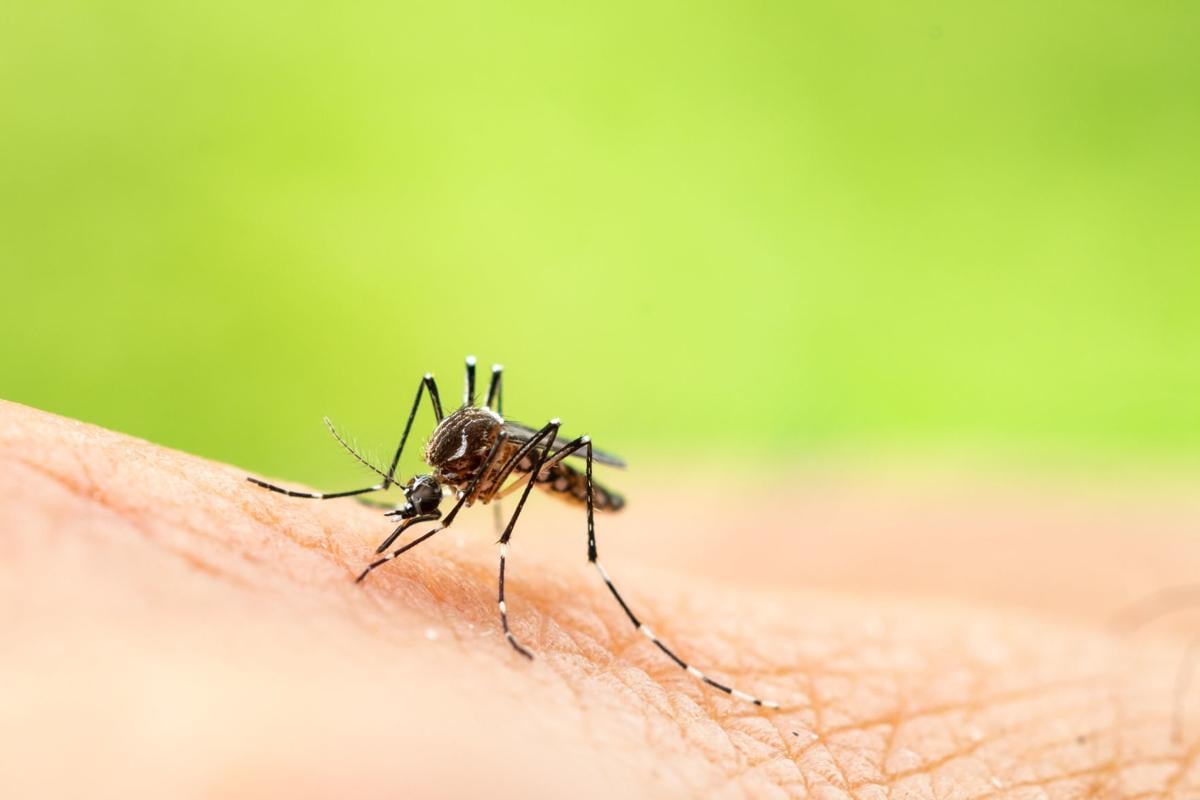While our monsoon rains are a blessing we don’t take for granted, they do come with some downsides — namely, more mosquitoes. The increased rainfall brings with it increased opportunities for standing water, which mosquitoes use to breed.
Besides being a nuisance, mosquitoes can also transmit various infections like West Nile Virus. While 80% of people infected with it will have no symptoms, the virus can lead to meningitis and serious illness. Mosquitoes can spread other terrible diseases, as well, including malaria, although this disease hasn’t been endemic in Tucson for many decades.
Tucson has a number of species of mosquitoes, including Culex spp. which transmits West Nile Virus and Aedes aegypti of malaria, Zika and dengue fever infamy. Only female mosquitoes bite, and they generally need a blood meal to lay eggs. Mosquito eggs can survive for months without water — for example, a female can lay her eggs on the side of your ceramic pot saucer or in moist soil near a source of standing water; the eggs can survive for months until there is standing water present — and then hatch a couple of days later.
You can still have water features and leave water out for birds and other wildlife. However, make sure to wash your plant saucers and bird baths weekly to remove potential mosquito eggs, per CDC guidelines. For your water features, mosquito fish, guppies, frogs and even goldfish will eat mosquito larvae. You can also use BTI which stands for Bacillus thuringiensis israelensis, a bacterium strain that produces toxins which kill mosquito larvae. This usually comes in inexpensive dunks shaped like small donuts which float on the water surface. BTI has been evaluated as safe for humans by the EPA. The EPA also states it is safe for birds and bees. However, other strains of Bacillus thuringiensis can be toxic to moth and butterfly larvae, and even honeybees, so for larger water features it’s safer to go with the natural predators mentioned above.
Water features also attract insects which are natural predators of mosquitoes, such as dragonflies. If you add water movement and aeration to your water feature, it will also discourage mosquitoes. The Audubon Society has some other helpful strategies for non-toxic mosquito controls. Also consider attracting bats to your property. According to the Nature Conservancy, bats can eat their body weight in bugs per night per bat!
To prevent bites, wear long sleeve shirts and pants. The added advantage is that they protect you from ultraviolet radiation which can lead to skin cancer. Choose bland colors such as tan or grey; mosquitoes are attracted to dark and vivid colors. Keep in mind that some mosquitoes can still bite through thin fabrics. You can also try to avoid outdoor activity at dawn and dusk, when mosquitoes are most active. Insect repellents such as DEET and citronella oils (like those in Avon Skin So Soft) can also repel mosquitoes.
Most mosquitoes do not travel far from their hatching area, so if you have lots of mosquitoes in your yard chances are you have some standing water somewhere which is encouraging breeding. Besides the aforementioned plant saucers and water features, look for anything that can collect water. This can include tires, wheelbarrows, watering cans, pet water dishes, plastic bags, containers of any kind, hollowed out tree stumps and even those flexible downspout extenders (they tend to collect water in the corrugated sections). Keep garbage containers closed.
Proper home maintenance can also prevent mosquitoes. Make sure your gutters aren’t blocked, and ensure any rainwater collection barrels are sealed against insect intrusion. Also, it’s important to ensure that your pool and filtering mechanisms are working properly. Check your property for water pipe leaks, since the moisture can also attract mosquitoes and encourage egg-laying.
Devices such as ultraviolet bug zappers, ultrasonic repellents, and mosquito traps are not effective, and can kill lots of beneficial insects, so don’t waste money on those. For some more local information on mosquito control, check out Pima County's information page on mosquitoes.
Mosquitoes are attracted to dark colors like black or navy blue because they like to hang out in dark areas.





